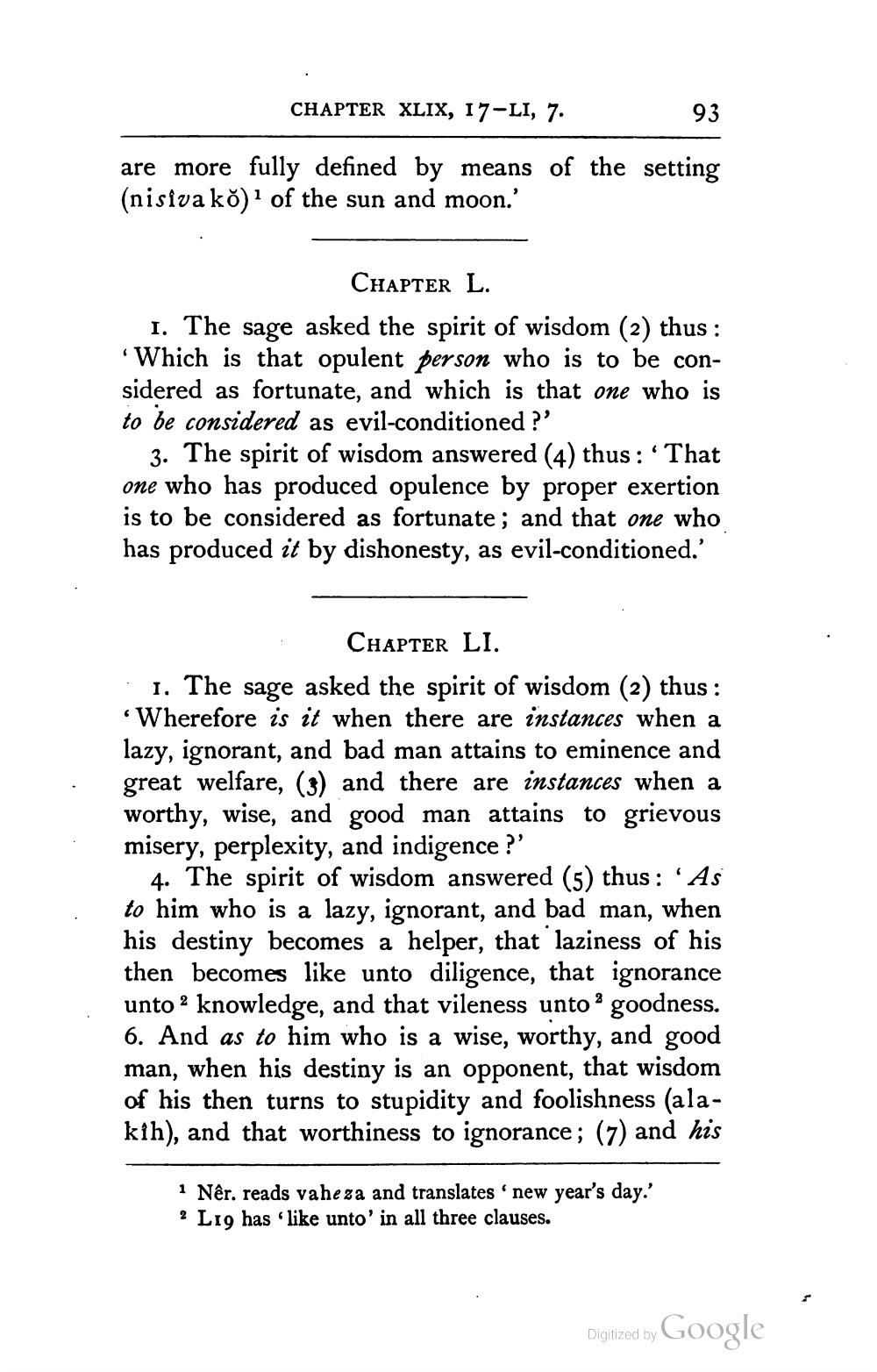________________
CHAPTER XLIX, 17-LI, 7.
93
are more fully defined by means of the setting (nisiva ko) of the sun and moon.'
CHAPTER L. 1. The sage asked the spirit of wisdom (2) thus: Which is that opulent person who is to be considered as fortunate, and which is that one who is to be considered as evil-conditioned ?'
3. The spirit of wisdom answered (4) thus : ' That one who has produced opulence by proper exertion is to be considered as fortunate; and that one who has produced it by dishonesty, as evil-conditioned.'
CHAPTER LI. : 1. The sage asked the spirit of wisdom (2) thus : •Wherefore is it when there are instances when a lazy, ignorant, and bad man attains to eminence and great welfare, (3) and there are instances when a worthy, wise, and good man attains to grievous misery, perplexity, and indigence ?'
4. The spirit of wisdom answered (5) thus : 'As to him who is a lazy, ignorant, and bad man, when his destiny becomes a helper, that laziness of his then becomes like unto diligence, that ignorance unto a knowledge, and that vileness untoo goodness. 6. And as to him who is a wise, worthy, and good man, when his destiny is an opponent, that wisdom of his then turns to stupidity and foolishness (alakih), and that worthiness to ignorance; (7) and his
1 Nêr. reads vaheza and translates new year's day.' 2 Lig has like unto' in all three clauses.
Digitized by Google




